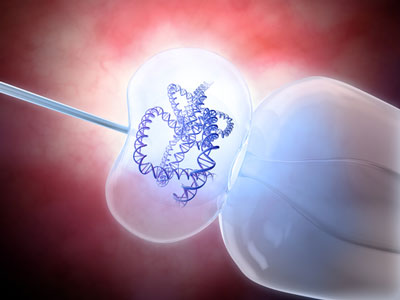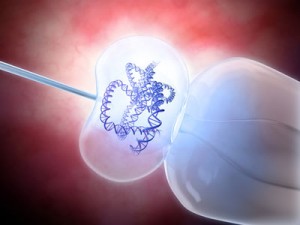GSK, Telethon and OSR announce EU regulatory submission for gene therapy to treat rare disease ADA-SCID
Posted: 6 May 2015 |
GSK, Telethon and OSR have submitted a marketing application to the EMA for a gene therapy to treat patients with a rare disease, ADA-SCID…


GSK, Fondazione Telethon and Ospedale San Raffaele (OSR) have submitted a marketing application to the European Medicines Agency (EMA) for a gene therapy (GSK2696273) to treat patients with a rare disease, adenosine deaminase severe combined immunodeficiency syndrome (ADA-SCID), for whom no suitable human leukocyte antigen (HLA)-matched related stem cell donor is available.


ADA-SCID is an ultra rare disease in which patients cannot make lymphocytes (a type of white blood cell) and, as a result, have a severely deficient immune system. An estimated 14 children in Europe are born each year with the condition. A faulty gene inherited from both parents stops production of an essential protein called adenosine deaminase (ADA), which is particularly important for the formation of lymphocytes and a functioning immune system. Children born with ADA-SCID have an impaired ability to fight off everyday infections resulting in severe and life-threatening illness. They rarely survive beyond 1-2 years unless immune function is restored.
Most patients with ADA-SCID require a bone marrow transplant from a matched donor
Patients with ADA-SCID initially take antibiotics and antifungal treatments to help protect themselves from serious infections, but most require a bone marrow transplant from a matched donor. However, the effectiveness of these transplants is highly dependent upon how close the match is between donor and patient. If no suitable donors are available, gene therapy, if approved, will provide another option.
Treatment with the investigational gene therapy begins with removal of cells from a patient’s bone marrow. Haematopoietic progenitor and stem cells are then purified from the bone marrow and over the course of a few days a modified virus, or vector, is used to insert one or more functional copies of the ADA gene into a proportion of those cells. When the gene-corrected cells are reintroduced to the patient and successful engraftment has taken place, the cells begin producing the ADA protein, thus restoring the patient’s ability to make lymphocytes which can then fight off infections. Using the patient’s own cells avoids the risk of immune-incompatibility, which is a common and life threatening complication associated with bone marrow transplant.
GSK2696273 is an investigational gene therapy which is not approved for use anywhere in the world.
The European Marketing Application is based on results from 18 children treated with the investigational gene therapy, twelve of whom were enrolled in a pivotal clinical trial conducted at San Raffaele Telethon Institute for Gene Therapy (TIGET). The first child was treated over thirteen years ago and all patients are alive today. Three of the eighteen patients required either long term enzyme replacement therapy or follow up bone marrow transplant. No significant tolerability events considered related to the gene therapy or leukemic events have been reported to date.
ADA-SCID treatment marks a significant milestone in showing the potential of gene therapy for tackling the underlying cause of serious diseases
Patrick Vallance, President of Pharmaceuticals R&D at GSK, said: “I am very pleased that we are now at a stage to file for approval of this gene therapy for ADA-SCID – a devastating rare disease which drastically limits and shortens patients’ lives. Development of this therapy would not have been possible without the immense support of the ADA-SCID patients’ families and the work of so many pioneering scientists who have worked in this cutting edge area of medicine for decades. We are privileged to take forward this submission.
“We believe this marks a significant milestone, showing the potential of gene therapy as an important additional modality for tackling the underlying cause of serious diseases.”
Francesca Pasinelli, General Manager at Fondazione Telethon, said, “The alliance with GSK was key to our strategy to bring all the relevant actors together to produce viable therapies for rare genetic diseases. We are now moving from the breakthrough results of gene therapy developed at TIGET to, if approved, bringing available treatments for ADA-SCID patients in need.”
Nicola Bedin, CEO of San Raffaele Research Hospital, said, “We are very satisfied with this extraordinary result gained thanks to the effective and innovative cooperation between three first-class institutes… We hope that this gene therapy will be approved and made available as soon as possible so that people can benefit from it”.
Alessandro Aiuti, Clinical Research Coordinator at TIGET, said: “This is an important landmark for clinicians, researchers and all the staff at TIGET who have been working side by side with GSK towards approval of this gene therapy. In the past years we have witnessed how a single infusion of gene modified stem cells has changed the lives of these children and their families. If authorised, we will be ready to offer gene therapy at our centre to ADA-SCID patients.”



